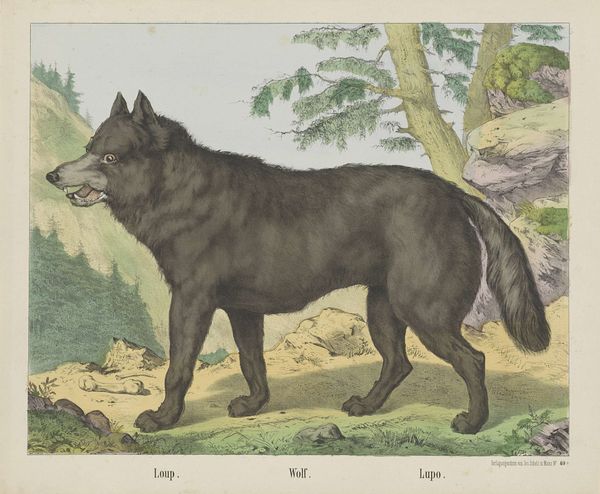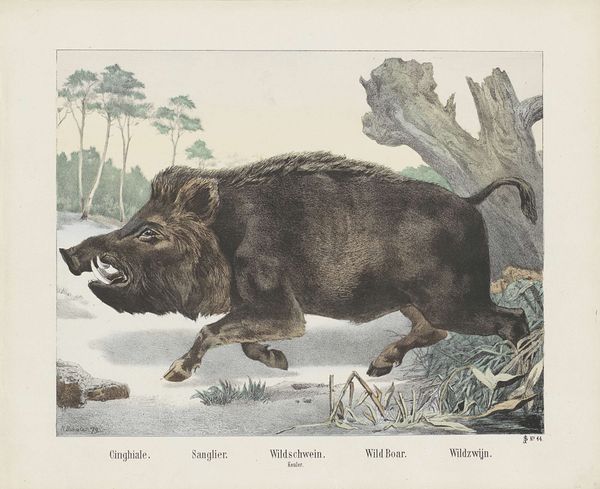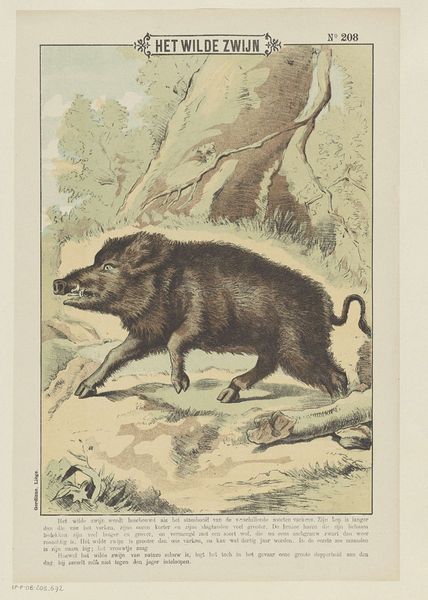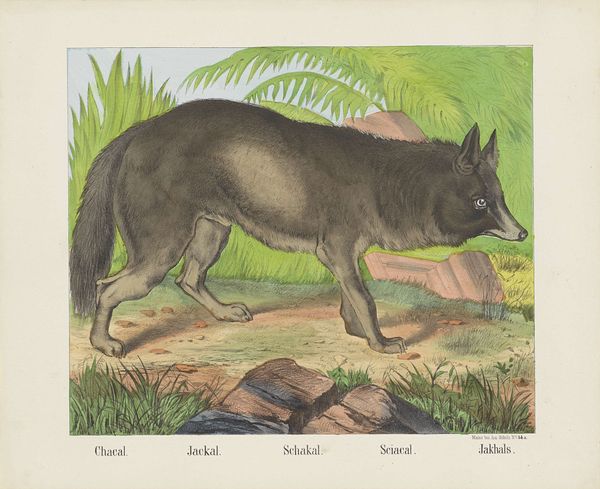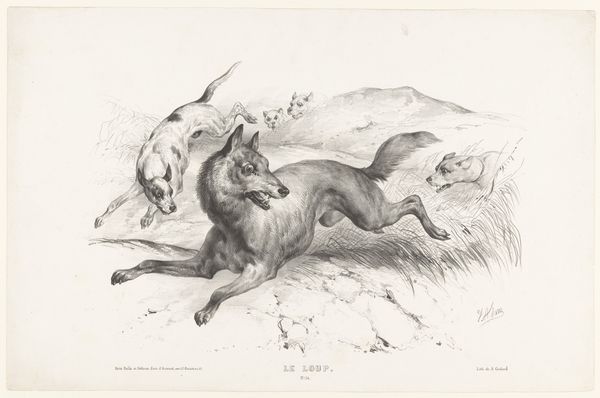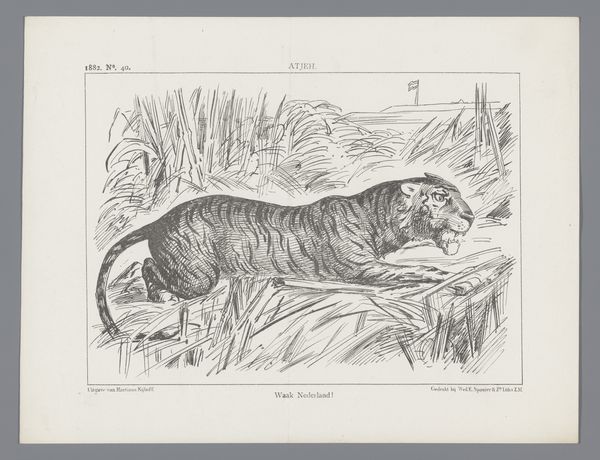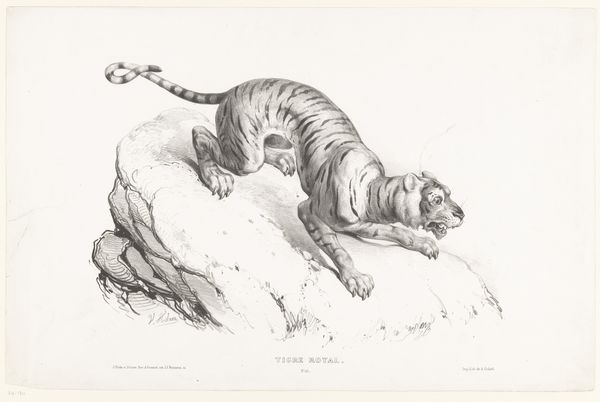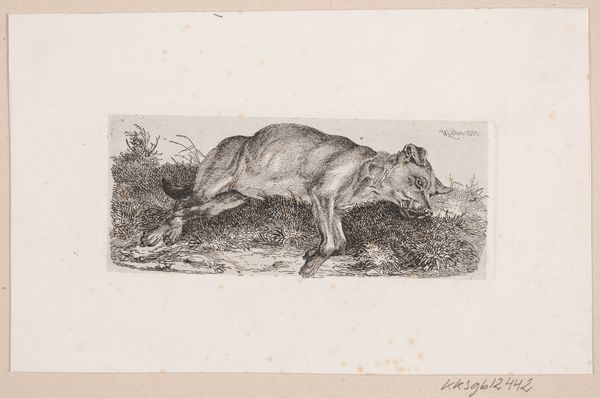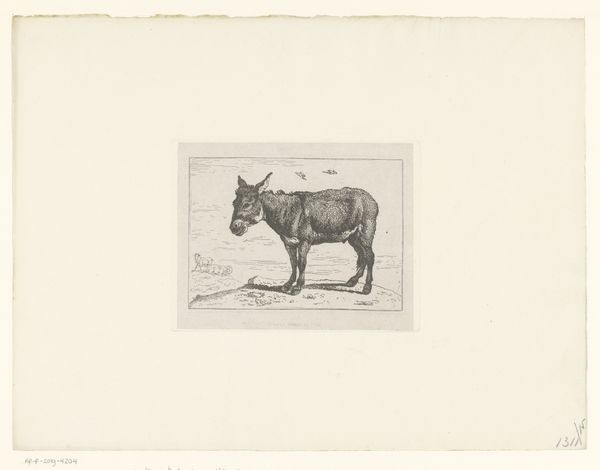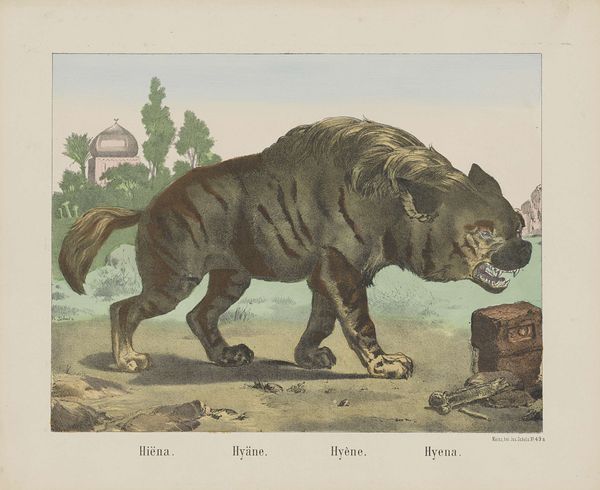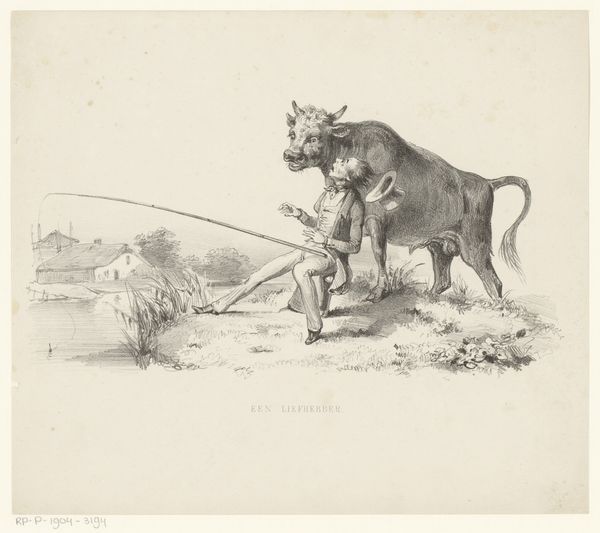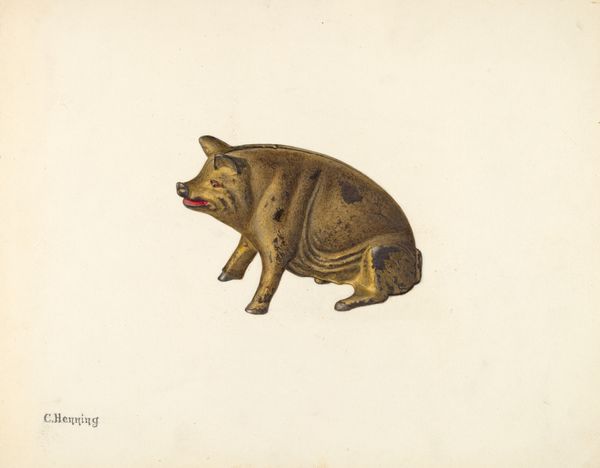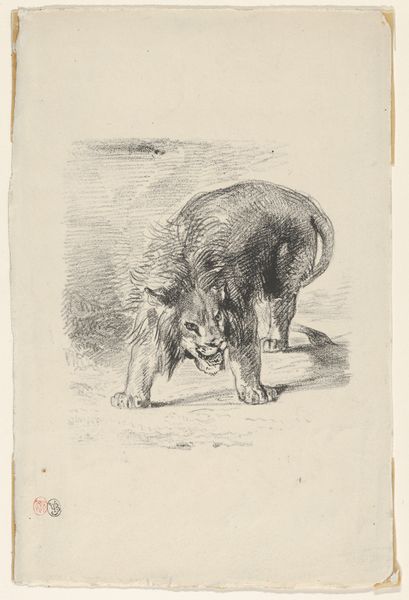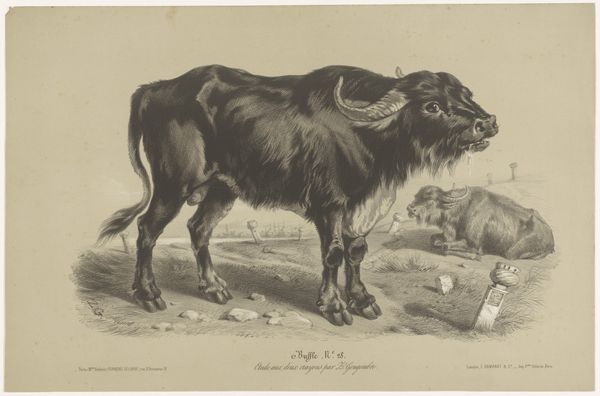
drawing, print, watercolor
#
drawing
#
animal
# print
#
pencil sketch
#
landscape
#
watercolor
#
watercolour illustration
#
naturalism
#
sketchbook art
#
watercolor
Dimensions: height 339 mm, width 428 mm
Copyright: Rijks Museum: Open Domain
Curator: Here we have a drawing from somewhere between 1833 and 1856 by A. van Loco. It’s titled “Sanglier,” or “Wild Zwijn,” depending on which language you prefer. Looks like pencil, watercolor, maybe even some print work in there too. Editor: Ooh, my first impression is just pure… energy! That wild boar is practically leaping off the page, ready to cause some mayhem. There’s a sense of unbridled… boar-ishness. Curator: That energy you're sensing, I wonder how much of that is deliberately constructed by the artist through, say, our social ideas about "the wild?" I mean, consider how wild animals were and are displayed, talked about, the visual culture *of* "wildness." Editor: I feel it too! I can almost hear the grunts and snorts. Maybe it’s the somewhat untamed quality of the lines – almost like a feverish, excited hand dashed this out onto the page. It doesn't seem like just anatomical study to me. Curator: Definitely. It speaks to a broader nineteenth-century fascination with the natural world. But naturalism wasn’t some objective recording device. There were real debates then about humankind’s place in it all. I bet it also made claims about national identity and class difference – after all, who was afforded the luxury to engage with 'nature', and how? Editor: Right! It feels… like an illustration pulled straight from some explorer’s journal, where scientific observation blurs beautifully into raw emotional response to nature’s power and wildness. Even a tiny bit of danger. Look at the tusks! I imagine the artist being struck, inspired, or maybe even afraid. Curator: That raw response would still carry heavy baggage about who *gets* to feel what about something like that boar, though. Editor: Agreed. Still, regardless, what really captures me is how the artist managed to breathe life into this creature. The posture and shading is really magnificent, it gives the beast an uncanny spark of sentience. Makes one question the boundary between us and the 'beasts.' Curator: Absolutely, and asking questions like that – unsettling boundaries, reassessing our assumptions – is something art excels at, I think. This boar becomes a mirror. Editor: Indeed, I think I'll look at boars a bit differently now, that's for sure. Thanks, Monsieur van Loco!
Comments
No comments
Be the first to comment and join the conversation on the ultimate creative platform.
